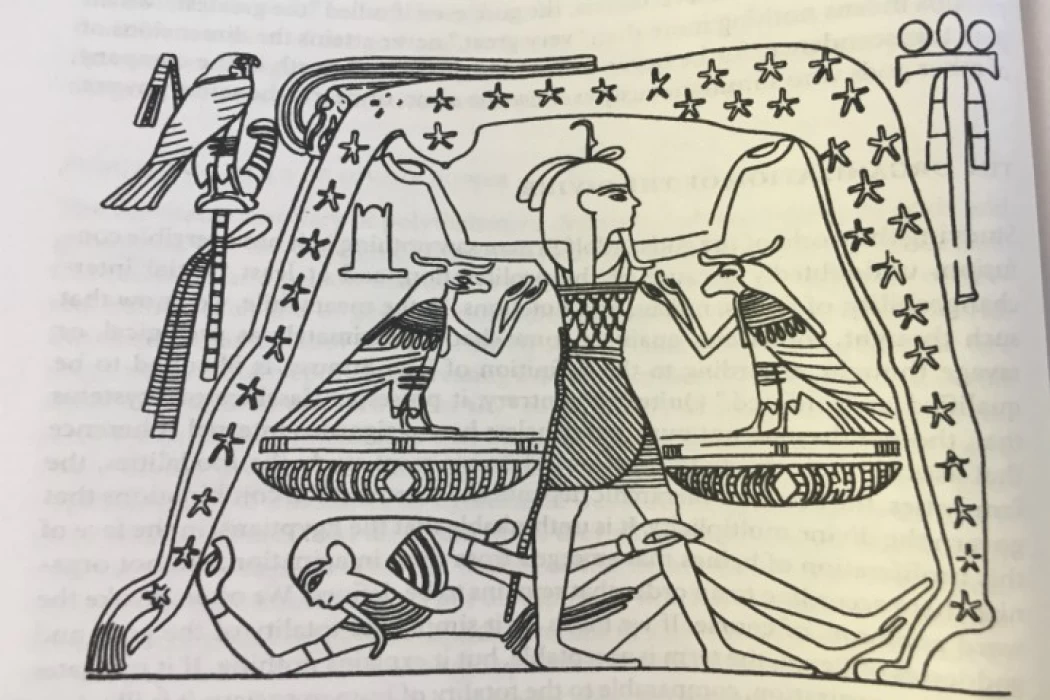
God Shu | Egyptian God of Air
Information About God Shu
God Shu is associated with the goddess Tfunut and is usually mentioned together in texts. His name is also apparently extracted from the root shaw, which means dry or empty. Thus, God Shaw was associated with heat, drought, sunlight, and dry space that filled the space between heaven and earth. God of air and life. As he separated heaven from earth, he took a significant role in creating the world.
He is the Lord of Air and Space and a member of the "Heliopolis" Jesus, who, together with the Lord of Humidity, represents the first pair of idols created by Atom by masturbation. The second husband of Jesus, the Lord of the Earth, and the Lord of Heaven, Nut, resulted from his marriage to the Lord. According to ancient Egyptian mythology, Shaw separated Jabb (Earth) from Knot (Heaven) and filled them with air. He is also a member of Atom's Heliopolis triad, Shaw, and its name means "space; air.
It is referred to in the "pyramid texts" in a relationship with the deceased king cleansing in Lake Shu, and that the king ascends to heaven above the bones of Shu, which may represent fog. Shaw has also been associated with light since the old State, and this may be seen as one of the characteristics or qualities of the air.
He likened Shu to many idols, such as Hor, Khanum and Khonso; He also took the character of the idol "In-Hor" or "In-Haret" (Anoris) in his role, which is evidenced by his name: "The one who attends the distance". Images usually in human form of a man who places on his head a feather that represents the ancient Egyptian symbol in writing his name.
He is usually filmed raising the sky "Nott" with both hands. Sometimes he is represented in Assad's body. The place of worship of Shu and his wife, Tvinot, was in Ni Ta What, now known as Tel Mubadam, or Lintopolis, as the Greeks called it, i.e. Lion City, for the body where the idol Shu and his husband were held there.
God Shu was born with his twin sister Tefnut, goddess of humidity, whom he took as his wife, from that union, Nut, the Goddess of the sky, was born, who represented the sky full of stars, and Geb that symbolized the earth.
This deity was represented as a man wearing a crown with an ostrich feather. In one of his hands, he carried a scepter; he could also be found with a knee resting on the earth, as that way he held heaven in his hands, encompassing its four cardinal points, which were called the pillars of Shu.
In other images of the god Shu, he is seen emerging behind the earth, holding a solar disk over his head, and with his hands holding the bases of the disk, he also appeared in the form of a lion; this was his most sacred manifestation.
This god of air and light was responsible for most of the meteorological phenomena, he represented the rays that came from the god Ra, along with the burning heat of summer and the dry air, in addition to the cold north wind.
Its main occupation was to keep the sky apart which was Nut and the earth represented by Geb, in order to prevent chaos in the universe, this was recorded in the Book of the Dead, leaving Hermopolis as the place where Shu had raised the sky.
The meaning of his name is not entirely clear, but it could be read as follows: ‘He who rises up.’ It might have come from a word that means "to be empty." Shu is typically portrayed as a man holding a feather, which is the hieroglyphic symbol for his name... He also belongs to Heliopolis' assembly of gods, where Shu and his sister Tefnut were the first to create the universe. The two emerged from the primordial god Atum, who possessed both male and female characteristics. According to one version of the Heliopolis creation myth, Shu came from Atum's exhalation.
The goddess Tefnut is the spouse of the god Shu. Shu, the god of air, and his sister and wife Tefnut, the goddess of water, are known to have mated to create the god of earth and the goddess of sky... The four of them represent the main elements of life, which are ‘earth, air, sky, and water.’ The ancient Egyptians believed that without water, the earth would dry up and be scorched by the sun's heat.
It was a centre of worship and a temple of the gods Tefnut and Shu in the city of Lyontopolis in the Egyptian Delta. The pharaoh and priests would purify themselves by tossing a stone into a deep pool before entering the temple to start the religious rites. Ordinary Egyptians were allowed to come to the doors or the front of the temple courtyard to receive blessings and offer gifts.














